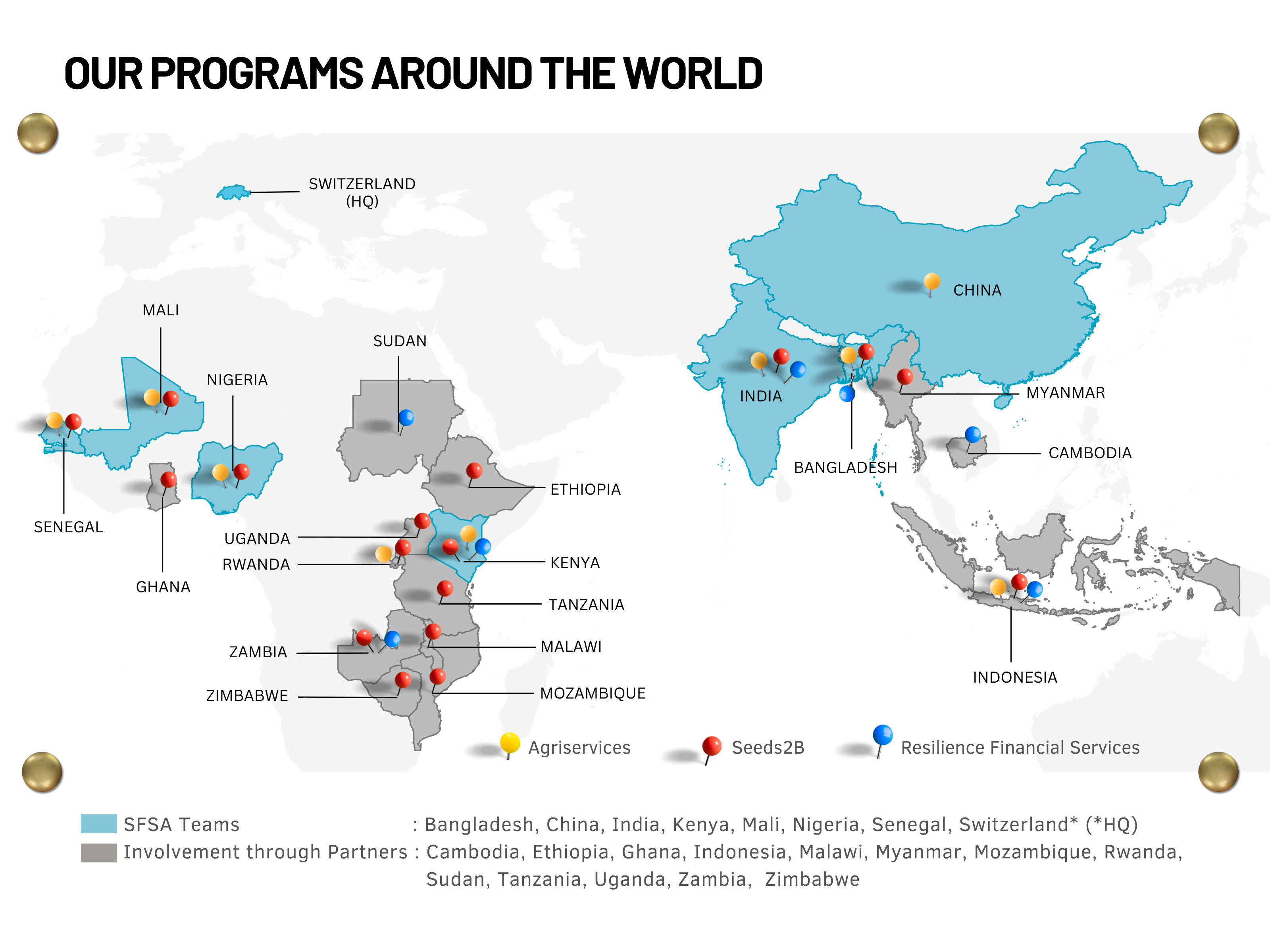
An agricultural program in Gansu province was initiated in 2018. The goal is to increase agricultural productivity and quality, and income opportunities of small-scale farmers in project locations. In 2019, we continue to support relevant activities on potato, vegetable and goji-berry crops in Gansu province. We plan to launch a new project focusing on improving kiwi fruit production and market linkages in Sichuan province.
- Agriservices
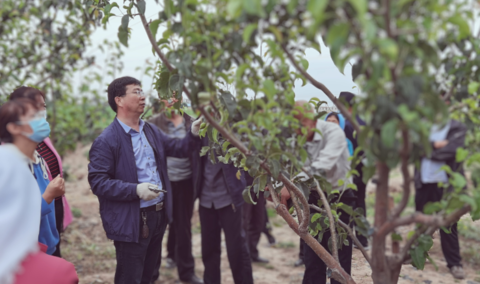
We established the Syngenta Foundation India (SFI) as an independent not-for-profit organization in 2005. From the outset, SFI’s mission was to have small and marginal farmers participate in agricultural development by improving their access to better seeds and other inputs, increasing their knowledge of agronomic practices, establishing ease of access to credit and providing systematic market linkages.
- Agriservices
- Seeds2B
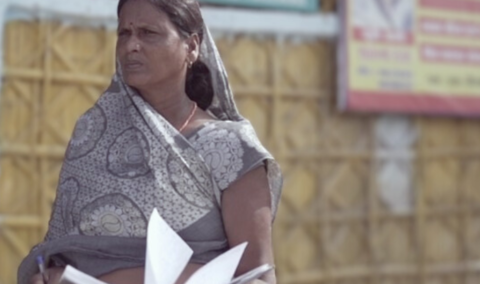
Since 2009, the Syngenta Foundation for Sustainable Agriculture (SFSA) has worked with partners to improve the crop yields and income of Kenyan smallholders. The work has focused on modern agricultural knowledge, soil management practices, and facilitating access to markets. Our Kenyan team helps, for example, to train farmers in conservation agriculture. It also supports them in the proper use of crop protection products, and in access to appropriate technology in a market-led extension service.
SFSA is also helping to tackle a huge threat to East African harvests: Maize Lethal Necrosis Disease (MLND). In 2017, Kenya's The Sower magazine reported on our two initiatives against MLND. In June 2018, our partners at CIMMYT announced a further round of phenotyping at the artificial inoculation screening site in Naivasha. "The main challenge now", says our Chief Science Advisor Mike Robinson, "is urgently to get the resistance genetics into suitable varieties. Our PPP approach enables that possibility."
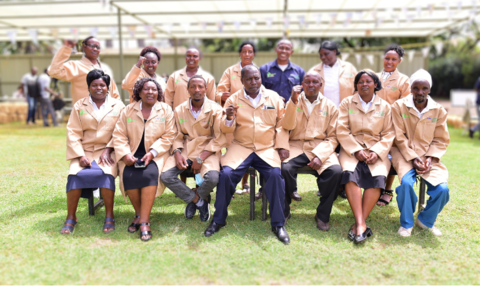
Factsheet of Syngenta Foundation East Africa
- AIS
- Agriservices
- Seeds2B
Agriculture in Mali
Located in the heart of West Africa, Mali is a country with a total area of over a million square kilometers, 18.3 million inhabitants and a population growth rate of 3.6 percent. Its economy is primarily based on agriculture and agro-pastoralism with most farming defined by small-scale, rain-fed subsistence systems with little reinvestment in mechanization. In 2016, the agriculture sector contributes about 42 percent to the country’s Gross Domestic Product (GDP) and employs more than 57 percent of the total labor force (World Bank). Cotton is grown as a cash crop (Mali is a net exporter of cotton). The country is a net importer of rice which, along with coarse grains such as millet, maize and sorghum, constitutes the main food crop. Cereals supply more than two-thirds of the country’s dietary energy supply. Most of the land lies within the Sahara Desert; Mali is one of the hottest countries in the world. It is characterized by two main regions, North and South, which each have different conditions for agricultural production; the northern region is most vulnerable to drought, desertification and population migration. The country’s adverse climatic conditions, along with its political and institutional instability, threaten the key sectors of agriculture and health.
Challenges for agriculture in Mali
Mali farmers face various challenges that threaten food and income security. In an already demanding environment, changing climatic conditions are leading to higher temperatures and decreasing rainfall, thus increasing the threat of drought and creeping desertification, particularly in the northern part of the country. Poor water control and a lack of irrigation facilities intensifies problems for farmers who may already face concerns over land tenure.
Farmers may find it difficult to access credit and are vulnerable to market volatility and consequent fluctuations in the prices of agricultural inputs and outputs. Farmers are further constrained by inadequate training and education in agricultural concerns, thus reducing their knowledge of, and access to, innovative technologies; a lack of capacity-building for farmers’ organizations has an effect on farmer autonomy. Poor infrastructure and limited storage options contribute to low productivity and post-harvest crop losses.
For Mali to become food secure and benefit from more broad-based economic growth, there needs to be greater stress on natural resource management; additionally, the challenges of low productivity, post-harvest crop losses, and under-developed markets must be addressed.
As well as subsidies allocated to cotton producers, the Malian government dedicates 15 percent of its budget to the agricultural sector. While only 7 percent of 43.7 million hectares of arable land is currently cultivated, and 14 percent of 2.2 million of potentially irrigable hectares are currently irrigated, the potential for agricultural growth and expansion in Mali is high.
Work of Syngenta Foundation for Sustainable Agriculture in Mali
Beginning in 1981, Mali was the first country with which the Syngenta Foundation for Sustainable Agriculture (SFSA) engaged in activities focused on improving the lives and livelihoods of smallholder farmers. SFSA initiated the PRECAD (Projet de Renforcement des Capacités pour une Agriculture Durable) project in 2006, with the aim of helping farmers to become more professional and to achieve higher yields and income.
SFSA seeks to enable small producers in West Africa not only to increase the quantity and the quality of rice, but also benefit to a greater degree by selling quality products through direct channels and secure markets. In addition, a chain of support is established through farming organizations and agricultural equipment operating centers, giving greater access to inputs, agricultural credit, training, agricultural equipment and secure markets.
Since 2015, the SFSA has been providing access to mechanization for rice farmers through their Center for Mechanized Services (CEMA). One CEMA has been implemented in the Kouroumari region, Office du Niger.
- Our work on Agriservices
- Seeds2B
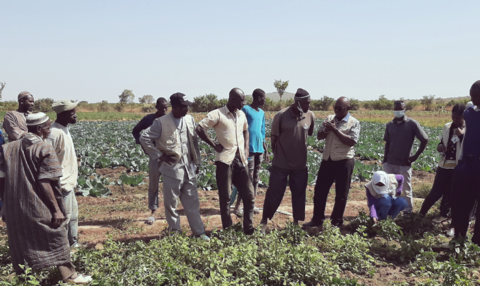
Nigeria is one of the most recent additions to our country portfolio. Work there so far concentrates on Seeds2B and Agriservices. Here is a 2019 interview with Isaiah Gabriel from our team there.
- Agriservices
Seeds2B
Fact sheets
- AVISA program
- SFSA Nigeria
Publication
State of climate-smart agriculture practices in the North Central and Northwest zones of Nigeria
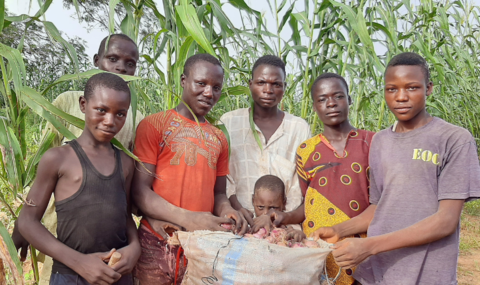
The Syngenta Foundation for Sustainable Agriculture (SFSA) has been active in the Senegal River Valley since 2014. Rice production is a major focus of activities.
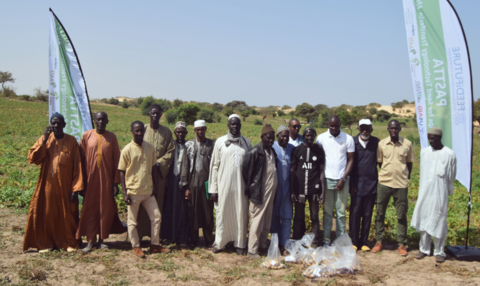
- Agriservices
- Seeds2B
The Syngenta Foundation for Sustainable Agriculture (SFSA) is working on a research project with the University of Sydney in collaboration with the Australian Center for International Agricultural Research (ACIAR). The research project is about finding solutions for Sustainable Intensification and Diversification in the Lowland Rice System in Northwest Cambodia. The project’s components intersect and build on each other to create a sustainable whole-of-community intervention that will improve the knowledge, practices, productivity, and profitability of lowland rain-fed farms.
Our Agriservices and other projects
- AIS: new programs
- Seeds2B: technical assistance to seed companies, product development
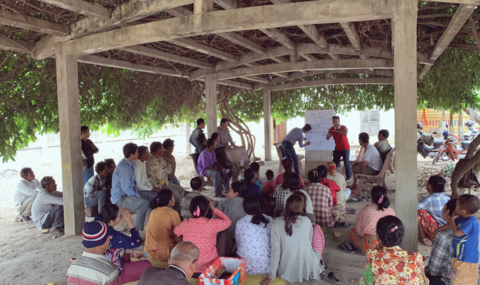
Tef is the national cereal of Ethiopia. However, yields of this crucial crop are far below their potential. See how an international team is improving tef - for smallholders and the whole country. We have supported this work from the beginning.
- Seeds2B: technical assistance to seed companies and product development
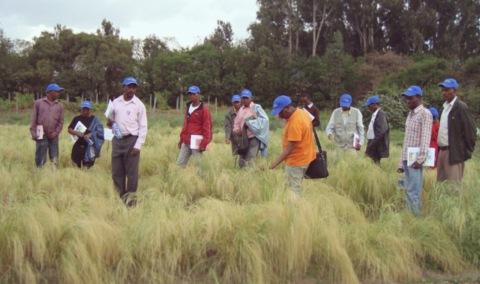
- Seeds2B: technical assistance to seed companies and product development
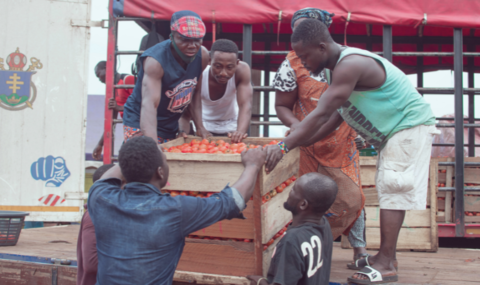
The Syngenta Foundation for Sustainable Agriculture (SFSA) - locally now YASI - aims to create value for Indonesian smallholders through innovation in sustainable agriculture and the activation of value chains. Farmers are introduced to new, affordable agricultural technology and trained in their use, based on local need. Examples include our Agriservices projects.
- AIS
- Agriservices
- Seeds2B
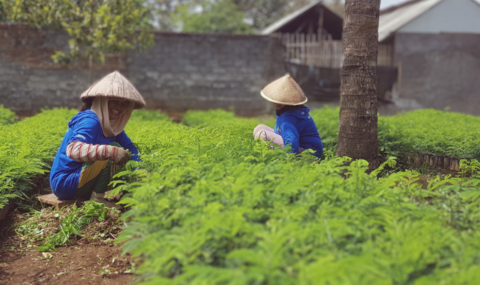
- Seeds2B: technical assistance to seed companies and product development
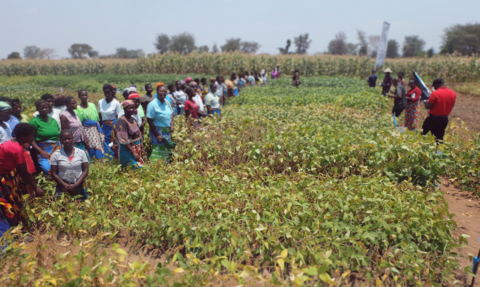
Myanmar (formerly Burma) is another recent addition to our countries of operation. Myanmar is one of the nations most at risk from climate change. Agricultural insurance provides a new way of spreading the burden of weather risk. Among other inputs, Burmese smallholders also need access to a greater range of seeds. (Update February & March 2021: Our team in Myanmar is safe and sound, and continues to work as best it can. We are monitoring the situation).
- AIS: new programs
- Seeds2B: technical assistance to seed companies, product development
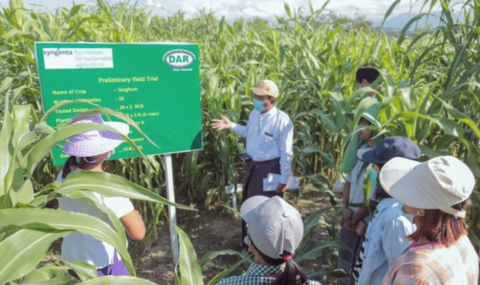
- Seeds2B: technical assistance to seed companies and product development
- Seeds2B: technical assistance to seed companies and product development
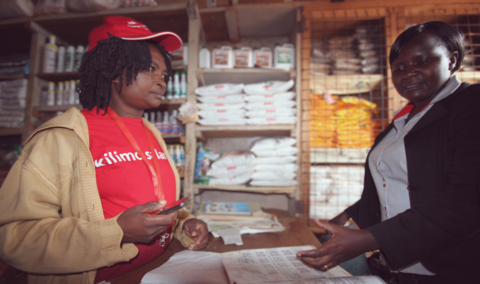
- Resilience Financial Services
- Seeds2B: technical assistance to seed companies and product development
The MandiPlus project: The Syngenta Foundation for Sustainable Agriculture (SFSA) and the Brazilian Agricultural Research Corporation (Embrapa) have developed a seed stake processing and treatment system that enables farmers to use significantly shorter planting pieces. Following very successful first trials in Brazil, the approach has been replicated under African conditions, in collaboration with the National Crops Resources Research Institute (NaCRRI) in Uganda. The funds for this project were provided by the Bill and Melinda Gates Foundation. In addition to assessing agronomic aspects (e.g. the impact of different treatments on crop germination and yields), the project team aimed to test the economic viability and stakeholder acceptance and develop a scale-up strategy. The project started towards the end of 2016 and finished the end of 2018. Learn more about this project
- Seeds2B: technical assistance to seed companies and product development
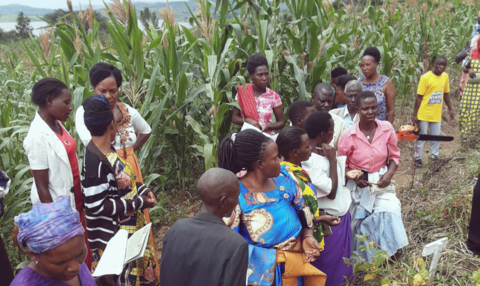
- Resilience Financial Services
According to the World Bank, extremely few adults living in rural areas use insurance products. Out of 18% of adults that were familiar with insurance products, only 5% purchased a product. This is primarily caused by a lack of understanding of insurance products. According to Finscope, affordability and limited knowledge on the value of insurance, are the other two main deterrents to its adoption in Zambia. One of the top priorities of Zambia's National Financial Inclusion Strategy is to increase the adoption of insurance products and the growth of microinsurance through innovation and the scaling up of suitable insurance solutions tailored to the needs of low-income households, including those in rural areas.
Syngenta Foundation conceptualized The Macro Resilience Program in Zambia to de-risk target smallholder farming communities by promoting the uptake of quality and insured agro-inputs through offering a hybrid index insurance solution that provides a good range of risks coverage i.e., drought, excessive rainfall and uncontrollable pests and diseases. Through these efforts, farmers would not only have access to high-quality inputs but would also be protected against pest invasion and irregular weather events.
The project was piloted in 2021 by Syngenta and ACRE Africa in partnership with other implementing collaborators in Zambia such as MayFair Insurance Company, Musika Development Initiatives , and Zep Re with Syngenta Foundation as the main project coordinator. The pilot season targeted the maize value chain with insured agro input. It focused on distributing an input bundle comprising seed, agro chemical and insurance through a network of agrodealers, whereby farmers’ cover was activated at the time of purchase. During the pilot launched in Central, Eastern and Southern Provinces, the project insured about 1,000 farmers. The payout mechanism comprised of redeemable vouchers to access seed & agro input for the upcoming season.
From the demonstration of proof of concept, through the support of SCBF, the Multi stakeholder programme is now scaling up to provide insured input (maize & soybean value chains) to more rural farmers in all 10 provinces of Zambia for the 2022- 2023 and 2023-2024 seasons, targeting a total of 30,000 smallholder farmers by 2024 (40% women). So far, the scale up has reached 7,833 farmers and plans are underway to incorporate a financial education window, together with Zambia local partners, to address barriers in accessing financial services i.e. access to crop insurance, trainings on savings and budgeting and incorporating Climate Smart resilient trainings, with an aim to protect smallholder farmers’ investment and productivity.
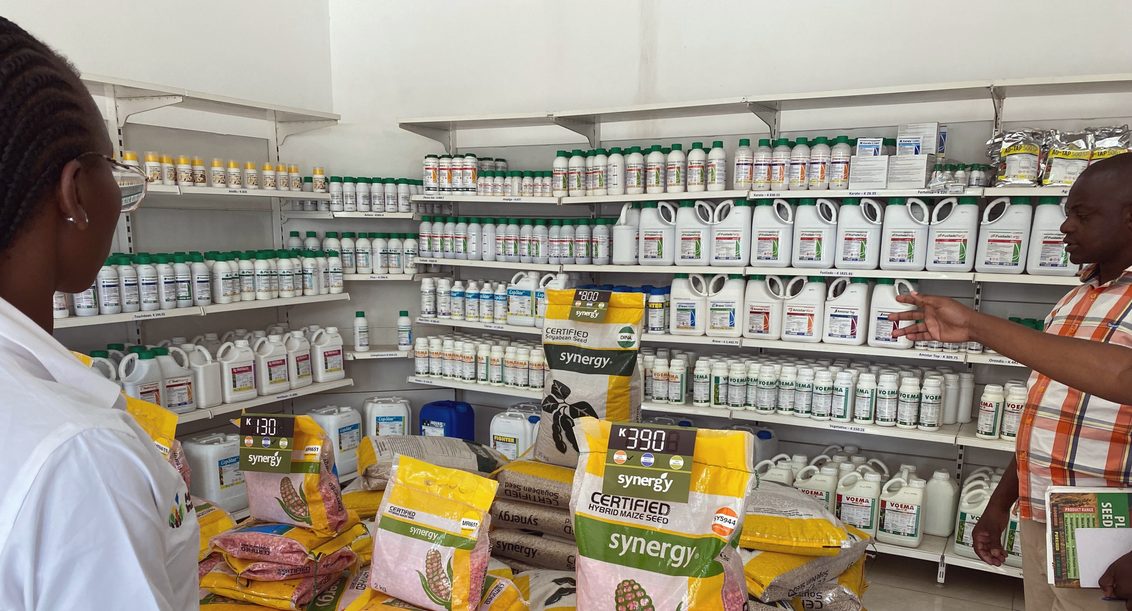
- Seeds2B: technical assistance to seed companies and product development
- Seeds2B: technical assistance to seed companies and product development
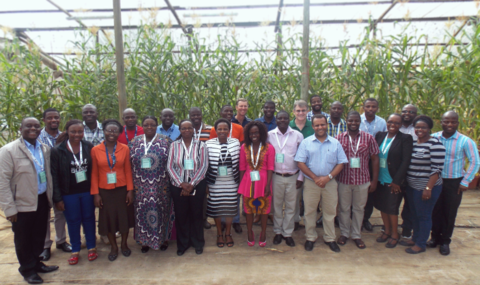

Agriculture in Bangladesh
The agricultural and rural sector in Bangladesh plays a vital role in the sustained food and livelihood security of its large and ever-growing population. Bangladesh's population of 164.6 million live on a landmass measuring 147,570 km². Bangladesh is predominantly an agrarian country. Due to its very fertile land and favorable weather, varieties of crops grow abundantly in this land. Sixty percent of the land is cultivable. In the past 20 years, the country has made great strides towards a reduction in poverty and child malnutrition. However, in rural areas the poverty rate still stands at approximately 26 percent, roughly 2 percent higher than the rate in urban areas before the pandemic. Many poor people who had graduated from extreme poverty in the past and used to live around the poverty line before the COVID-19 pandemic may fall back into poverty or extreme poverty again. The country’s Gross Domestic Product (GDP) share for agriculture (14%) has been declining for the last few years but gross volume has increased. Though the agricultural sector employs 43% of the total labor force, the country’s “demographic dividend”- youth adults are reluctant to get involved in this sector due to poor return on investment and lack of assets, skills, and respect from the community. It needs to increase the sectoral growth rate of GDP in agriculture and the average growth elasticity of agriculture is to be improved if the growth elasticity of poverty is to be reduced. In this case, continuous innovation of technology is required to increase agricultural productivity and get the right involvement of educated youth. Each and every year it loses about 100,000 hectares of productive agricultural land through conversion to non-agricultural uses on one hand and confronts climate changes, soil health deterioration, and water management on other hand. Bangladesh is transitioning from its designation as an LDC (Least Developed Country) to a MIC (Middle Income Country). Therefore, meeting its Sustainable Development Goals (SDG) is a key priority for Bangladesh, and ensuring food security through agricultural development is its prime concern.
Challenges for agriculture in Bangladesh
In Bangladesh, smallholder farmers make up the largest sector of agriculture workers. Lack of access to training in up-to-date agricultural practices and appropriate technologies means that these farmers often work at a subsistence level. Agricultural extension services are inadequate and modern machinery is often unavailable or difficult to access. An inefficient value chain and an unstructured market system hamper the efforts of farmers to get the best from their efforts. The impact of climate change, already becoming evident in the agro-ecosystem of the country, creates an additional challenge. Lower yields and poor-quality crops are the inevitable results. This, in turn, lessens the potential income for small and marginal farmers, bringing negative consequences for them and their families.
Work of Syngenta Foundation for Sustainable Agriculture Bangladesh
SFSA Bangladesh is the country office of Syngenta Foundation for Sustainable Agriculture (SFSA) in Bangladesh, operates as an “International NGO” under the registration from NGO Affairs Bureau of Bangladesh. Since 2011, SFSA Bangladesh has been implementing several cutting-edge climate-smart resilient agriculture, nutrition and food systems, and economic development projects in the country for smallholder farming and livelihood improvement. It manages the country program portfolios, partnerships, and liaisons with the public, private, and research organizations and representation of SFSA in the host country.
The role of SFSA Bangladesh is to create value for resource-poor small farmers through innovation in sustainable agriculture and the activation of value chains. It currently does this in main ways:
Along with our own funded project, SFSA Bangladesh has been developing/ co-creating, and implementing different donors and partners projects. The recent funding support from donors include:
Besides, Agriservices program, we are working on Weather Index-based crop insurance system development and promotion, and the seed potato multiplication program. Further information on these is available below- Agi Insurance Services Access to Seeds.
Our Agriservices projects
Our Insurance projects
Our Seeds2B projects